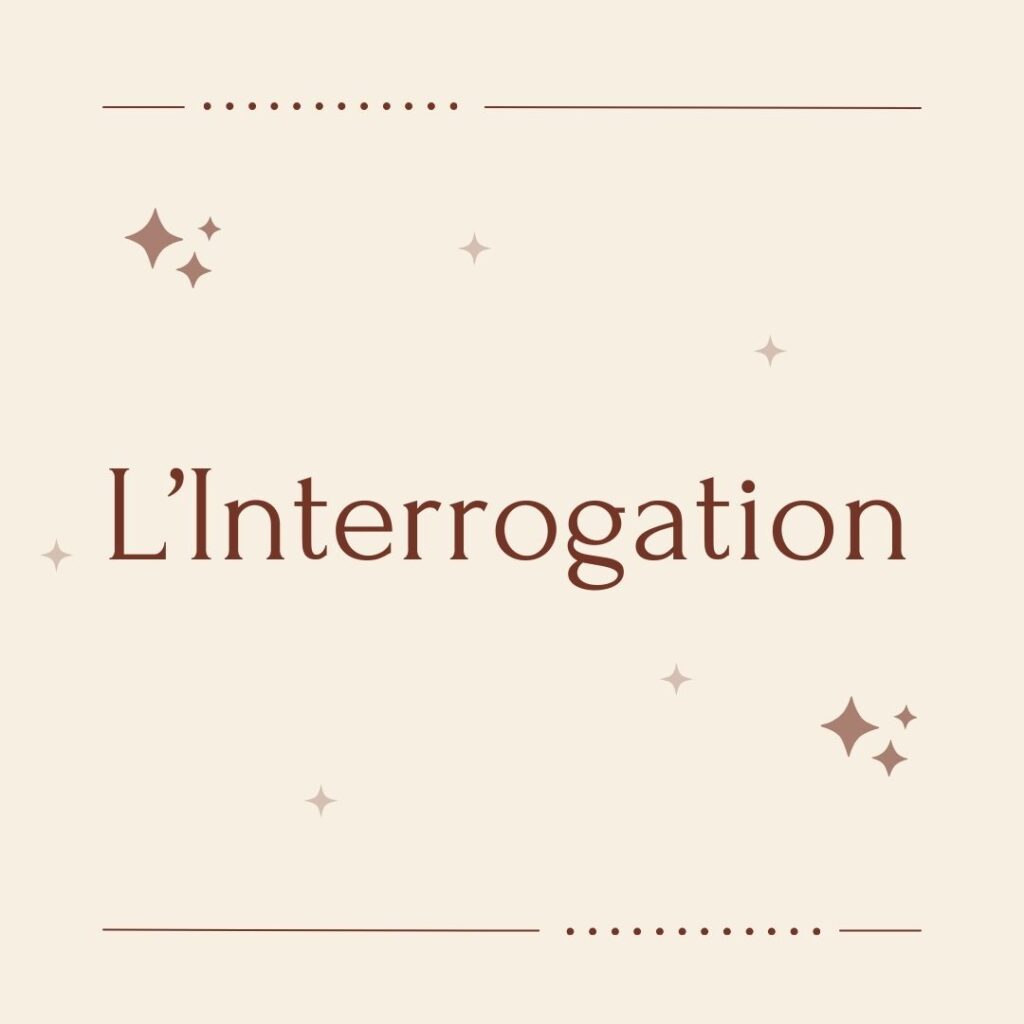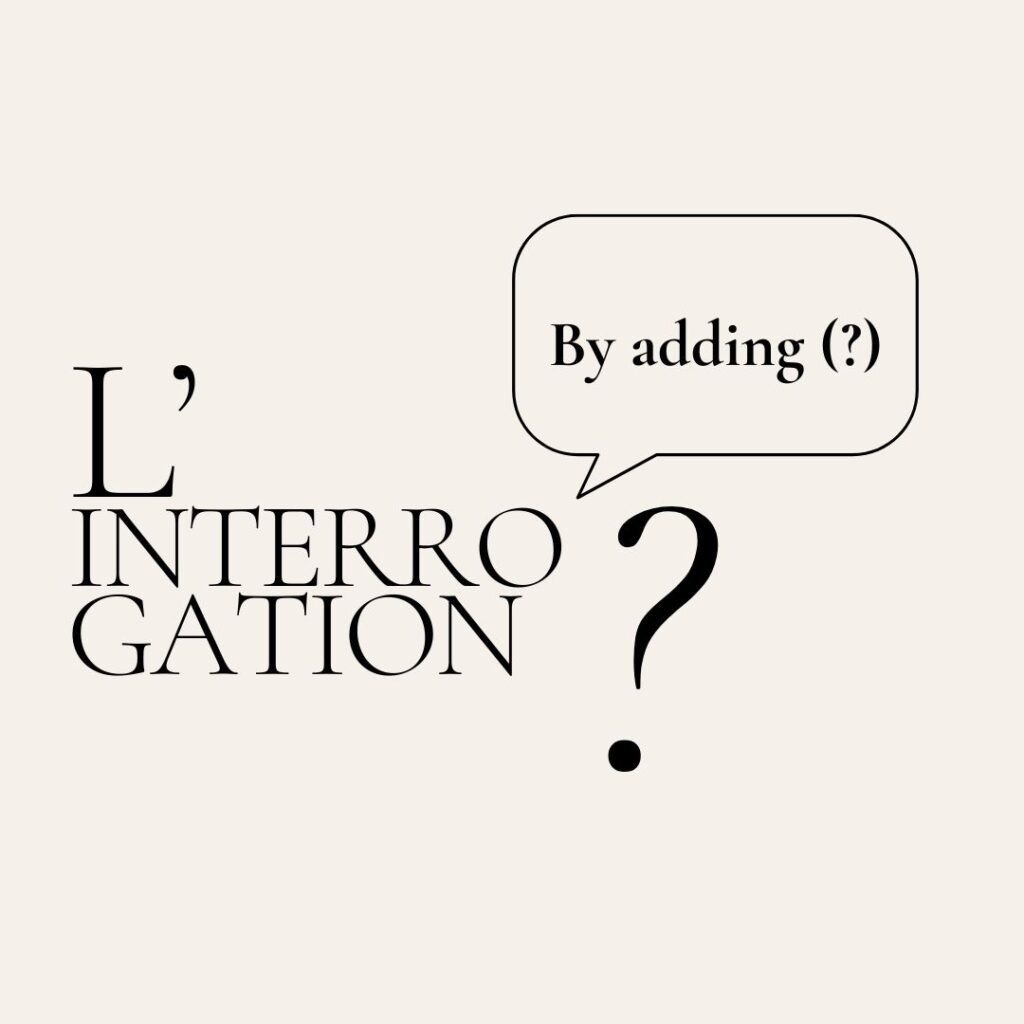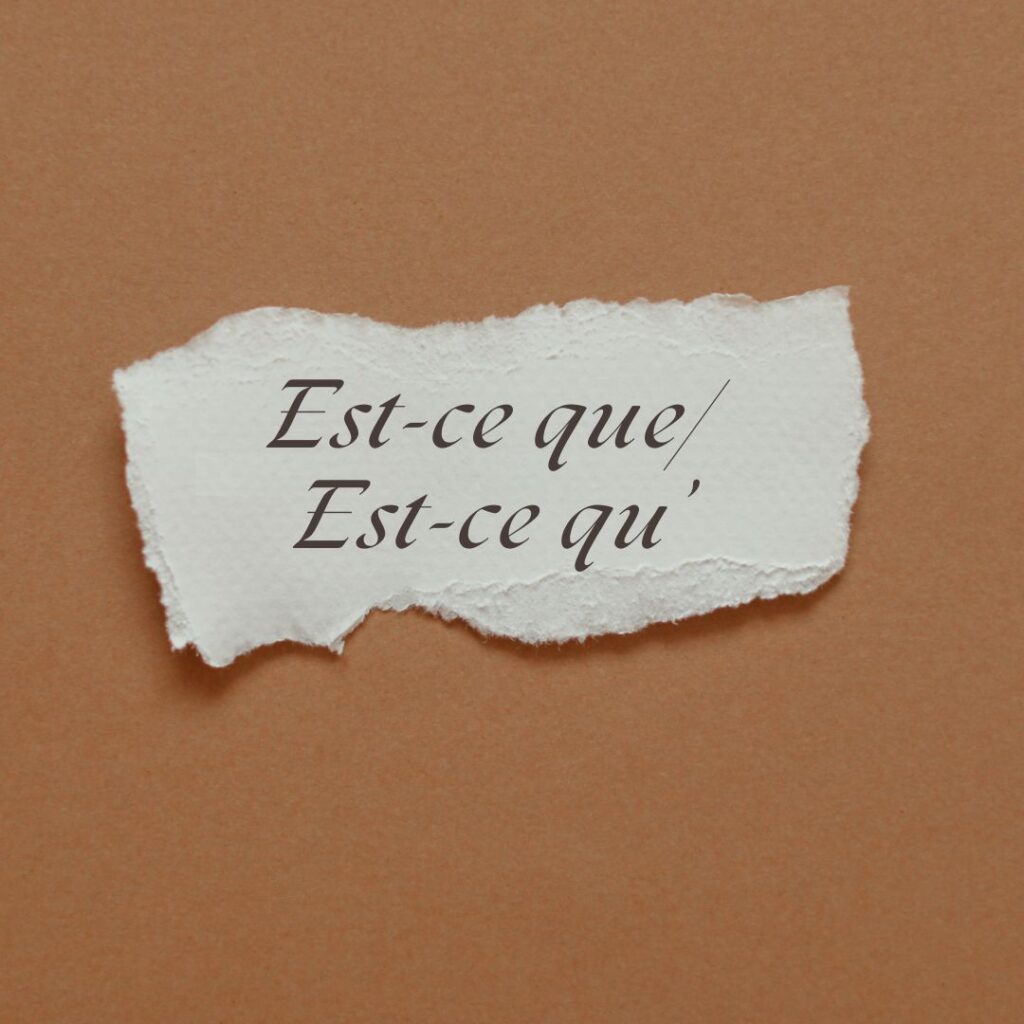The act of asking questions is called “l’interrogation” in French. Numerous ways to formulate questions in French exist, such as using question phrases, inversion, or putting question tags.

Asking questions is a crucial component of any interaction, whether you’re working, traveling, studying, or simply attempting to understand someone better you need to question to understand.
But the fact is, when you ask questions in French, the expression used is “Poser une question”. Therefore, “demander” is not used but “poser” even though “demander” means ‘to ask’ it still does not go well in case of asking a question.
WAYS TO ASK QUESTIONS :
1. First and foremost is very simple and informal way to ask i.e. by raising the pitch and adding a question mark(?) to an affirmative (positive) sentence. For ex.

- Vous parlez anglais?
- Elle danse?
- Nous allons au cinéma?
2. The next way is to add a question tag “Est-ce que” before an affirmative sentence. It works great with yes/no questions. For ex.

- Est-ce que tu étudies le français?
- Est-ce qu’elle joue avec ses amis?
- Est-ce qu’il va à la bibliothèque?
Est-ce que literally means “Is it that” but while asking questions it translates as “Do you? Are you? Is she? Has he?”. It is an interrogatory phrase that can change any statement into a question. And it can be placed at the beginning of the sentence. Also, any interrogative word, adjective, adverb, pronoun, etc. can be placed before the expression “est-ce que”. For ex.
- Quel film est-ce qu’il regarde?
- Quand est-ce qu’elle arrive?
- Pourquoi est-ce que tu veux voir ce film?
- Qu’est-ce que c’est?
Note: Que changes to qu’ in front of vowel. For ex. Est-ce qu’elle….
3. The third way is usually the formal way to ask questions, i.e., inversion, which means to interchange the positioning of the verb and the Subject Pronoun and add a hyphen (-) between them. For ex.

- Parles-tu le français?
- Quand est-ce que vous arrivez d’Inde?
- Regardent-ils des séries?
When the subject pronoun starts with a vowel like (il,elle, on) and the verb also ends with a vowel then “t” is used between them. For ex.
- Aime-t-elle la baguette?
- Écoute-t-il les musiques?
- A-t-on mangé?
Use These Structures To Ask Negative Questions:
- Vous ne parlez pas l’anglais?
- Vous arrivez d’Inde, n’est-ce pas?*
* n’est-ce pas? is usually used at the end of the sentence because you’re pretty sure about the question in the positive form i.e. the answer to the question is “Yes”. It translates to right? For ex. You are arriving from India, right?
